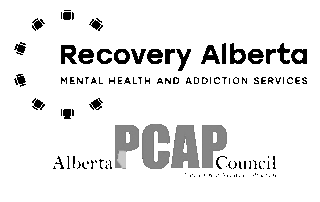
By canfasdblog on May 10, 2023 07:00 am
There’s a lot on the go right now in the realm of FASD research. Many studies are looking for people to share their ideas and experiences. There’s also new resources and articles being published every day. Read on to find out what’s happening in FASD research right now!
CHoOSE: Co-Creating Housing Solutions
People with FASD can struggle to find and maintain safe and secure housing. The CHoOSE project seeks to better understand housing and FASD and find innovative, research-based solutions.
The project team just released a new resource for housing providers. The Service Provider Human-Centred Design Toolkit is a tool you can use to get a better understanding of the needs, goals, and experiences of those who are engaging with your service.
Members of the project team are hosting an information session on May 17th to help you better understand the toolkit and apply it to your work. If you’re interested in participating, please email housing@canfasd.ca.
Substance Use Treatment in Youth with FASD
Last year we published a guide sharing how providers can move towards FASD-informed care in substance use treatment. We also released a course, which is available in both English and French. But we know youth with FASD experience significant challenges with substance use too.
Our newest research project is focused on substance use treatment, specifically in youth with FASD. We are looking for youth with FASD (between 12 and 24), caregivers, and service providers to talk about your experiences in a short interview. The interview will take about 30-45 minutes of your time. If you’re interested in participating, please contact emcarlso@ualberta.ca.
Strengths in Adults with FASD
People with FASD have many strengths and abilities. When we understand these strengths and successes, we can leverage them to support health and wellbeing.
Last year, Drs. Katy Flannigan and Jacquie Pei, and the AFECT Committee at CanFASD came together to create a research project on Strengths in Adults with FASD. They are looking for adults with FASD to share their experiences as part of this study. Adults can share their ideas by completing a survey, by sending us your artwork, or you can do both. Anyone with FASD (18 years or older) from anywhere in the world can take part in this project.
We are closing the survey at the end of June, so if you want to participate in this project but haven’t yet, be sure to complete the survey soon! Click here to learn more about the project and fill out the survey.
Understanding the Brain
Prenatal alcohol exposure can impact how brains and bodies are formed. When we have a better understanding of how brains develop in children and youth with prenatal alcohol exposure, we can make sure we’re targeting treatments to the right place.
Researchers in Alberta are doing a study to better understand the brain. They are looking for children and youth between 7-18 years old, with and without prenatal alcohol exposure, to come to Calgary or Edmonton for a cognitive and behavioural assessment and MRI scan. Visit the project website to learn more and participate.
One of the research publications from this study, Brain Iron and Mental Health Symptoms in Youth with and without Prenatal Alcohol Exposure, was even featured on the CanFASD Top Articles List for 2022!
FASD and the Law
Dr. Kaitlyn McLachlan, our Justice Research Lead, and her team at the PLAN Lab are looking for people to participate in two studies about FASD.
The first is research on legal decision making. They need people with FASD who are between 18 and 26 years old to participate in one or two online sessions. You will be asked to read a legal case, make decisions, and do problem-solving activities. You can have a caregiver or support person there with you. Contact planlab@uoguelph.ca if you’d like to participate.
The second is a study for professionals working in criminal, legal, and forensic contexts. All you have to do is complete a 30–45 minute survey about FASD identification and screening. You don’t need to have experience in identification and screening to participate. Follow this link to complete the survey.
The post What’s Happening in FASD Research? appeared first on CanFASD.











